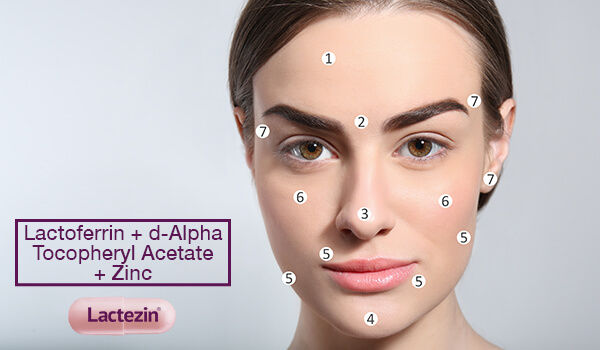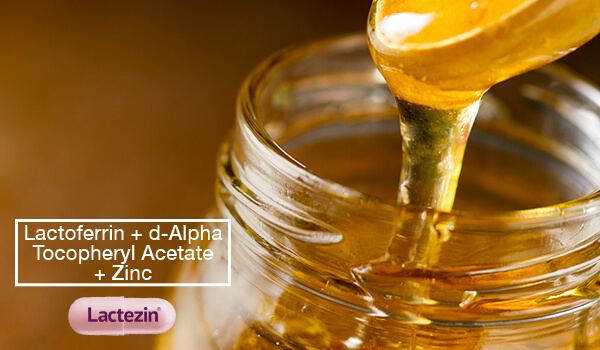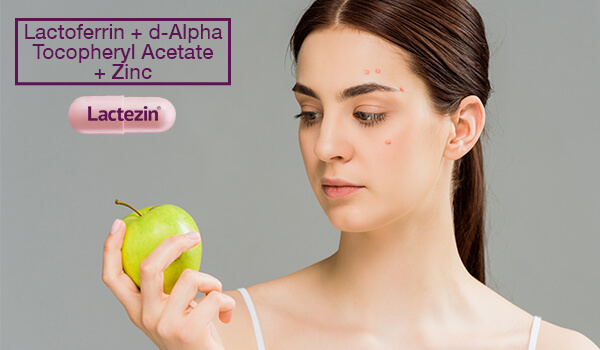Pimples That Won't Quit? It Could Be Hormonal Acne
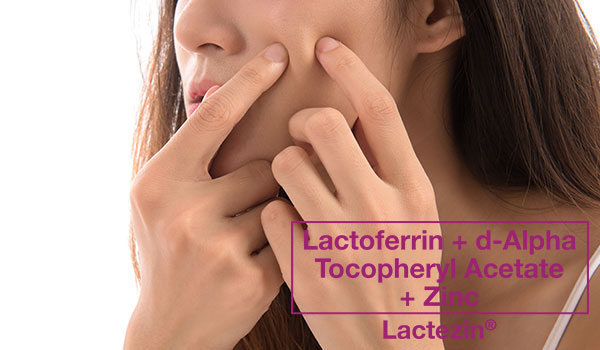
As much as we want pimples to remain a memory from our teenage years, this is sadly not the case for many women thanks to hormonal acne. The good news? It can be treated.
What is hormonal acne?
First, it’s important to understand the difference between hormonal acne and your run-of-the-mill pimple. As the name suggests, hormonal acne is intrinsically linked to your hormones, particularly estrogen and progesterone. The fluctuations of these hormones occur around the menstrual cycle month, which may explain why you break out around the time of your period.

In addition, the ratio of estrogen and progesterone can also affect testosterone levels in women. This, and cortisol, the stress hormone, can be causative in hormonal acne.
Experts believe that these hormonal fluctuations in women do cause increased oil production in the pores, which may be how hormonal acne starts.
How do you know if you have hormonal acne?
There are several signs that hormones are to blame for your breakouts. It may be hormonal acne if:
-
- You’re no longer in your teens.?
This type of acne is most likely to start occurring when you’re in your twenties, which is when women are most hormonally active. This period is considered as peak childbearing age, which makes women prone to the intense hormonal fluctuations of pregnancy, childbirth, and lactation. However, age alone does not determine whether you’ll break out or not. Even menopause can cause a resurgence of these breakouts.
- You’re no longer in your teens.?
-
- You break out around the chin and jawline.
If you notice pimples around the lower part of your face– the chin and jawline area in particular– it is most likely hormonal acne. This is because the fluctuations in your hormones stimulate the oil glands, many of which are found in that part of the face. While the chin and jawline area are the most common places for this type of acne, it may also pop up around the side of the face and even down the neck.
- You break out around the chin and jawline.
-
- You’re constantly stressed out.
Have you been putting in overtime work more often lately? You may want to slow down. Cortisol, the stress hormone, can affect all your other hormones and cause them to fluctuate, resulting in a hormonal acne flare.
- You’re constantly stressed out.
-
- Your breakouts happen once a month.
According to experts, hormonal acne often manifests in a cyclical pattern similar to menstrual cycles in women. This means hormonal breakouts tend to occur around the same time each month, and usually around the same area, though this may vary from person to person. - You’re dealing with more painful breakouts.
Unlike your typical whiteheads and blackheads, which occur at surface-level, hormonal acne can come in the form of painful cysts. These breakouts manifest as deeper bumps under the surface of the skin, as they’ve accumulated oil over a period of several days which can then cause an inflammatory reaction. This is why they’re usually tender to the touch.
- Your breakouts happen once a month.
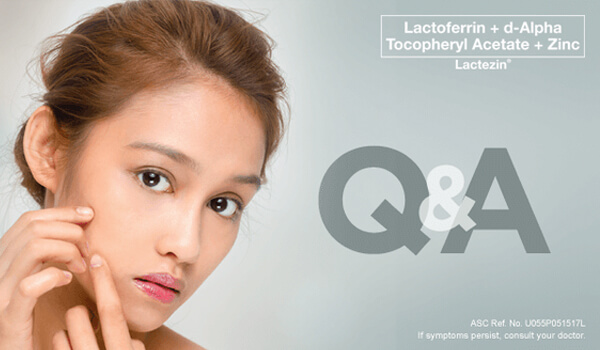
How to get rid of hormonal acne
While this type of acne is finicky in nature and definitely annoying, it is also normal and treatable. A good place to start would be choosing a good cleanser with key acne-fighting ingredients like Salicylic or glycolic acid.
You can also seek the help of a dermatologist who can help you build a treatment plan on top of your skincare routine. This acne management plan may involve oral medication such as Lactoferrin + d-Alpha Tocopheryl Acetate + Zinc (Lactezin). Click to learn more about how Lactezin works.
Note: As of publication, the use of Lactoferrin + d-Alpha Tocopheryl Acetate + Zinc (Lactezin) in treating acne caused by Polycystic Ovary Syndrome (PCOS) has not been tested. Consult your health professional on the best way to manage this type of acne.?
If symptoms persist, please consult your doctor ASC Ref No. U137I081419L
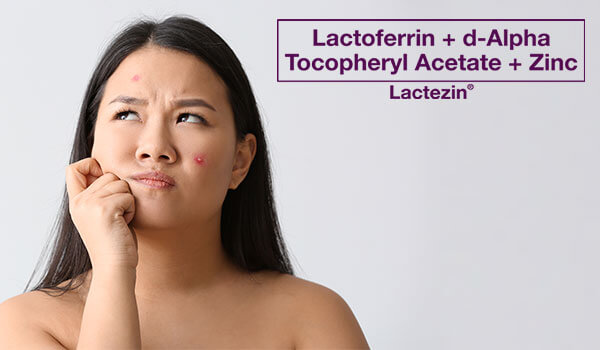
SOURCES:
https://www.aad.org/media/news-releases/hormonal-factors-key-to-understanding-acne-in-women
https://www.rd.com/health/beauty/all-about-hormonal-acne/ – Reviewed by Jill Waibel, MD
